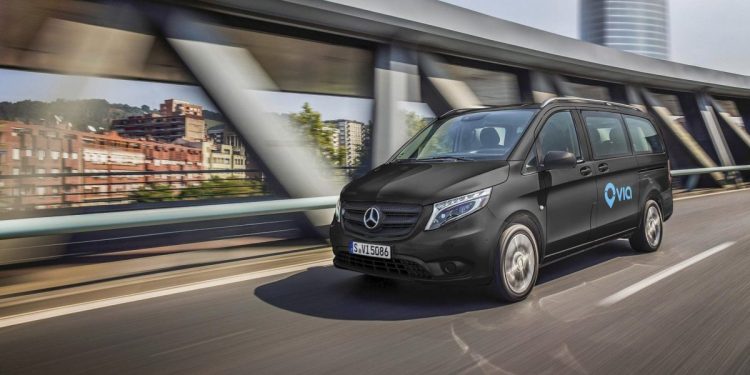Watch all the Transform 2020 sessions on-demand here.
Transportation startup Via today announced that it has raised $200 million in series E financing, bringing its total raised to over $500 million at a $2.25 billion valuation — more than double its $1 billion valuation in 2017. According to cofounders Oren Shoval and Daniel Ramot, part of the funding will enable Via to expand its efforts around the novel coronavirus outbreak, which include emergency services and transit network optimization in locations like the city of Berlin, the state of Ohio, and the country of Malta.
Via’s ride-sharing app and service tap AI to combine multiple passengers or packages headed in the same direction in real time, ostensibly reducing urban congestion and emissions while providing a lower-cost mobility service. Shared rides are usually from corner-to-corner, requiring passengers to walk to a nearby pickup point indicated on the app.
Via offers a ViaPass in multiple cities where it operates. In some places, ViaPasses are periodic subscriptions that allow participating customers to ride several times per day on a weekly or monthly basis, while in other cities, a ViaPass may allow riders to pay upfront for ride bundles, unlock discounts, or activate public transit concessions.
Via first launched in New York City in 2013, but it’s now deployed globally in more than 70 cities in 20 countries, including in Europe as ViaVan in partnership with Mercedes-Benz Vans. To date, the company says it has provided over 70 million rides around the world, up from 50 million as of July 2019. And Via works with more than 100 partners across municipalities, public transit agencies, transportation operators, corporations, schools, and universities to optimize their transport systems, such as the city of West Sacramento, the Los Angeles Metro, Transport for London, Sydney’s Transport for New South Wales, and the New York City Department of Education.
June 5th: The AI Audit in NYC
Join us next week in NYC to engage with top executive leaders, delving into strategies for auditing AI models to ensure fairness, optimal performance, and ethical compliance across diverse organizations. Secure your attendance for this exclusive invite-only event.
Last year, Via announced the debuted a driverless shuttle program in New South Wales, Australia, in partnership with the BusBot project, local bus operator Busways, local government agency Transport for New South Wales, and startup EasyMile. More recently, it launched an on-demand transportation pilot in Sacramento, California, that let customers hail rides from apps and the city’s public transportation department.
Like its chief rivals Uber and Lyft, Via faces an uphill battle as COVID-19 rages on around the world. Earlier this month, it suspended shared rides in areas like New York City, Chicago, and San Francisco in order to prevent infection, a blow to its shared-ride business model. And a report from Edison Trends found that consumer spending on ride-sharing plummeted up to 21% in the seven-day period ending March 16, with further declines likely as business closures and shelter-in-place orders spurred by the coronavirus pandemic continue.
Still, Ramot has said that the end goal for Via is an initial public offering. It’s unclear when that might happen.
Exor — the $26 billion holding company controlled by Italy’s Agnelli family — led this latest funding round in Via, with participation from new investors Shell, Macquarie Capital, and Mori Building, as well as existing investors Pitango, 83North, Hearst Ventures, Ervington Investments, Planven Ventures, Broadscale Group, and RiverPark Ventures. Noam Ohana, head of Exor Seeds, the early stage investment arm of Exor, will join Via’s board of directors.


